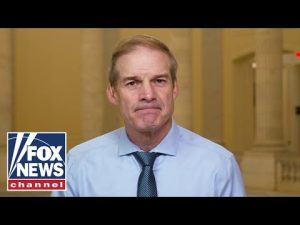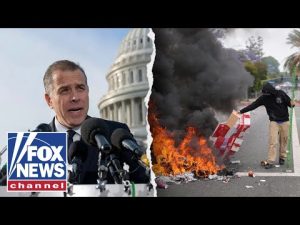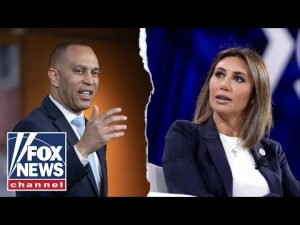In a recent exposé, some serious claims have emerged regarding the actions of former President Barack Obama and his allies, particularly in relation to the infamous Trump-Russia collusion narrative. Tulsi Gabbard, the former congresswoman and Director of National Intelligence (DNI), shared explosive documents that she believes illustrate a so-called treasonous conspiracy orchestrated by Obama in the final weeks of his presidency. This shocking revelation has raised some crucial questions: Should leftists who are accused of treason face the consequences of their actions? Or is the risk of unrest too great to pursue justice?
According to the documents unveiled by Gabbard, over 100 pieces of evidence now shed light on the alleged conspiracy, which critics assert was designed to undermine the electoral choice of the American people. The claim posits that the Trump-Russia collusion narrative was manufactured as a diversion and a smear campaign against Donald Trump, effectively painting him as a foreign agent. With President Trump himself echoing sentiments on social media platforms regarding the documents, it’s clear that the debate over accountability is heating up.
But here’s where it gets a bit sticky. In conversations amongst friends and family, the idea of prosecuting high-profile figures like Obama and his cohorts has sparked skepticism. Many believe that such influential figures operate in a bubble of protection, one that renders them untouchable. The prevailing thought seems to be that holding them accountable may lead to chaos, with radicals taking to the streets to express their dissent. The risk posed by this notion is a pervasive situation where American citizens begin to lose faith in their government altogether, often leading to unrest and division.
The notion of a corruption-infested government has left many citizens questioning why they should continue to shell out hard-earned money in the form of taxes when those who should be held responsible seem to be getting off scot-free. The real danger lies not just in the actions of those in high places, but in the disillusionment of ordinary Americans who come to realize that the rule of law may not apply to everyone equally. If left unchecked, this erosion of trust could result in a society that feels justified in flouting the law, leading to a slippery slope of chaos and disorder.
There’s an undeniable urgency expressed by those calling for accountability. Critics emphasize that, if the documents are to be taken seriously and reflect the truth, then those implicated must face justice. Some figures within the justice system, like Pam Bondi, are now under scrutiny to bring these revelations to light and decide the course of action. The stakes are high, and as the calls for accountability grow louder, many wonder if any action will indeed be taken against those deemed responsible for the chaos of previous years.
As the potential for investigations looms large, it’s become apparent that failing to hold these influential figures accountable may lead us down a dark path. History has shown that without consequences, the likelihood of repeat offenses increases, often manifesting in larger-scale political and civil unrest. Just think about it: if there’s no justice for the perceived injustices done to the American people, what message does that send about the equality of our justice system? The answer to that question may have far-reaching implications for the future of our democratic republic.







